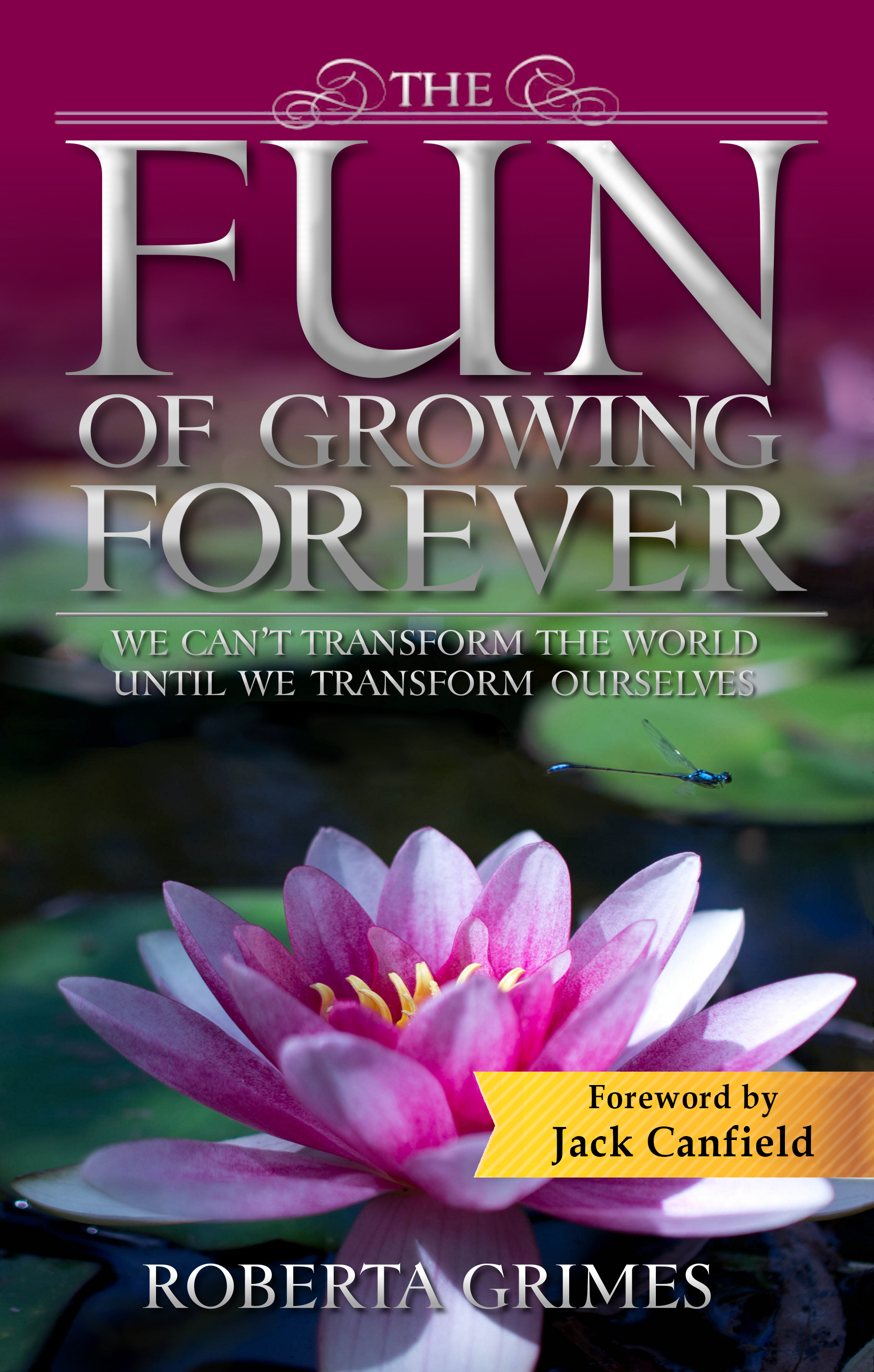Somewhere over the rainbow, way up high,
There’s a land that I heard of, once in a lullaby.
Somewhere over the rainbow skies are blue,
And the dreams that you dare to dream really do come true!
Someday I’ll wish upon a star
And wake up where the clouds are far behind me!
Where troubles melt like lemon drops,
Away above the chimney tops, that’s where you’ll find me.
Somewhere over the rainbow, bluebirds fly.
Birds fly over the rainbow. Why then, oh, why can’t I?
– Harold Arlen (1905-1986) & Yip Harburg (1896-1981), from “Somewhere Over the Rainbow” (1938)
 My Thomas and I became so distracted last week by our need to debunk the spurious notion that near-death experiences have anything to do with actual death that we ran out of space in which to finish describing what the afterlife is like. And Thomas said afterward that we cannot have that! He pointed out to me vast sets of topics that you will need to understand if you are ever to make any sense at all of this whole gigantic afterlife picture. He insisted that if we hope to be able to claim that we have even halfway discussed the afterlife in a respectable way, then this will have to be a four-part series. So, okay then. A four-part, or even a five-part series this will be!
My Thomas and I became so distracted last week by our need to debunk the spurious notion that near-death experiences have anything to do with actual death that we ran out of space in which to finish describing what the afterlife is like. And Thomas said afterward that we cannot have that! He pointed out to me vast sets of topics that you will need to understand if you are ever to make any sense at all of this whole gigantic afterlife picture. He insisted that if we hope to be able to claim that we have even halfway discussed the afterlife in a respectable way, then this will have to be a four-part series. So, okay then. A four-part, or even a five-part series this will be!
 In fact, the aspects of life in the afterlife that have been bumped now into an extra week or two are some of the most enjoyable parts to talk about. After you have left your earthly body and been escorted home by your deathbed visitors; after your life-review and your need to forgive everyone who ever harmed you on earth, and your need to forgive yourself for harming everyone that you yourself have ever harmed; and after your big welcome-home party, where John Lennon sang “Imagine”, or Early Elvis sang “All Shook Up”, or perhaps most of the Beatles together sang that they would be happy just to “Hold Your Hand”; and then your spouse from this most recent earth-lifetime took you home to show you that he or she had constructed here a copy of your house from this lifetime just ended, and with the lanai overlooking the ocean included that you both had wanted to add to your earth-house, but that you never could have afforded on earth… So then, what happens next?
In fact, the aspects of life in the afterlife that have been bumped now into an extra week or two are some of the most enjoyable parts to talk about. After you have left your earthly body and been escorted home by your deathbed visitors; after your life-review and your need to forgive everyone who ever harmed you on earth, and your need to forgive yourself for harming everyone that you yourself have ever harmed; and after your big welcome-home party, where John Lennon sang “Imagine”, or Early Elvis sang “All Shook Up”, or perhaps most of the Beatles together sang that they would be happy just to “Hold Your Hand”; and then your spouse from this most recent earth-lifetime took you home to show you that he or she had constructed here a copy of your house from this lifetime just ended, and with the lanai overlooking the ocean included that you both had wanted to add to your earth-house, but that you never could have afforded on earth… So then, what happens next?
 When you have an enjoyable eternity ahead in which to have an infinity of whatever is your own idea of fun, then you know that you really are in heaven, for sure! But, what kinds of fun are possible for us there? Back in the Seventies, I was mostly taking care of babies and doing afterlife research, and I was particularly fascinated then by this question. And fortunately, in the dusty old used-book stores in Boston and in Worcester, Massachusetts, there were still to be found some of the books that had been written maybe sixty or more years earlier about the work of the great physical mediums who had been esspecially active in Boston and London around the turn of the twentieth century, and who had received precisely the kinds of information that I was most eager to find. And oh, how eagerly I devoured those books!
When you have an enjoyable eternity ahead in which to have an infinity of whatever is your own idea of fun, then you know that you really are in heaven, for sure! But, what kinds of fun are possible for us there? Back in the Seventies, I was mostly taking care of babies and doing afterlife research, and I was particularly fascinated then by this question. And fortunately, in the dusty old used-book stores in Boston and in Worcester, Massachusetts, there were still to be found some of the books that had been written maybe sixty or more years earlier about the work of the great physical mediums who had been esspecially active in Boston and London around the turn of the twentieth century, and who had received precisely the kinds of information that I was most eager to find. And oh, how eagerly I devoured those books!
We will talk next week or in the following week about all the things that there will be for you to do for fun, for education, and even as part of your efforts to better understand earth-history in depth. For now, though, you will need first of all to be able to envision what we are coming to understand about the gigantic astral realities themselves, just the whole environment in which our eternal lives continue to unfold forevermore. Of course, we can indeed venture beyond this nearby environment, and in a reality in which travel seems to be instantaneous, it is likely that many of us do undertake some extremely far away travel on occasion! But for the most part, we seem to remain largely around our more familiar eternal places. Let’s talk now, though, about what this unimaginably enormous astral reality truly seems to be like!
 Of course, all of reality exists within and is composed of Consciousness. By now, this fundamental truth feel comfortably certain to most of us, although the very concept of consciousness is still something that materialist scientists are having a hard time wrestling with, so it is difficult for them to make sense of the notion that there really is nothing else but consciousness. As we have said here in various posts, this is a problem for old-style materialists that is somewhat akin to a fish’s efforts to get a handle on the difference between water and not-water from his fully-submerged-in-water perspective. But consciousness in one form or another actually is all that there is. In fact, nothing else exists.
Of course, all of reality exists within and is composed of Consciousness. By now, this fundamental truth feel comfortably certain to most of us, although the very concept of consciousness is still something that materialist scientists are having a hard time wrestling with, so it is difficult for them to make sense of the notion that there really is nothing else but consciousness. As we have said here in various posts, this is a problem for old-style materialists that is somewhat akin to a fish’s efforts to get a handle on the difference between water and not-water from his fully-submerged-in-water perspective. But consciousness in one form or another actually is all that there is. In fact, nothing else exists.
 We understand that consciousness is energy, so it vibrates. And the easiest way to envision our astral reality as we experience it is as hundreds of layers of energy vibrations of graduated strength within consciousness, each of which is a separate reality. These different realities really are very much like the ascending numerical channels on a television set, with your mind as that TV itself. But, my dear friends, the greater reality to which we return after we die really is gigantic! As best we can determine from here, that greater reality may be more than a hundred times greater in relative size than is this entire universe. Think of this material-seeming universe as vibrating the lowest and slowest, with the non-material astral aspects of reality all graduated in strength and vibrating higher and higher. For convenience, afterlife researchers group all the many layers above this material reality into seven collective levels. Level One is what Jesus calls “the Outer Darkness, where there will be weeping and wailing and gnashing of teeth” (MT 8:12). Level Two is the recovery level just above; and Level Three is the Entry Level, where nearly all the family compounds are located, and where most of us return home. Levels Three through Five are what the Vikings called the Summerland, very earth-like, and increasingly beautiful the higher you go. Level Six is the Causal or Mental Level, with universities but mostly not very earth-like; and Level Seven is the Source Level, or the Godhead Level. Until recently, we believed that once you entered the Seventh Level, you would merge with the Godhead Collectives and your individuality would disappear, but we have lately come to understand that this happily is not true.
We understand that consciousness is energy, so it vibrates. And the easiest way to envision our astral reality as we experience it is as hundreds of layers of energy vibrations of graduated strength within consciousness, each of which is a separate reality. These different realities really are very much like the ascending numerical channels on a television set, with your mind as that TV itself. But, my dear friends, the greater reality to which we return after we die really is gigantic! As best we can determine from here, that greater reality may be more than a hundred times greater in relative size than is this entire universe. Think of this material-seeming universe as vibrating the lowest and slowest, with the non-material astral aspects of reality all graduated in strength and vibrating higher and higher. For convenience, afterlife researchers group all the many layers above this material reality into seven collective levels. Level One is what Jesus calls “the Outer Darkness, where there will be weeping and wailing and gnashing of teeth” (MT 8:12). Level Two is the recovery level just above; and Level Three is the Entry Level, where nearly all the family compounds are located, and where most of us return home. Levels Three through Five are what the Vikings called the Summerland, very earth-like, and increasingly beautiful the higher you go. Level Six is the Causal or Mental Level, with universities but mostly not very earth-like; and Level Seven is the Source Level, or the Godhead Level. Until recently, we believed that once you entered the Seventh Level, you would merge with the Godhead Collectives and your individuality would disappear, but we have lately come to understand that this happily is not true.
As best we can determine, each of those hundred or so vibratory layers is divided from the others only by its rate of energy vibration, and the layers are all of about the same size, to the extent that “size” means anything. In other words, each of the astral realities in the collection of realities to which we return after we die on earth is probably independently as large as is this entire material universe. It is hard for us even to conceive of so much astral space, so very many material-universe-sized slices layered one above another in vibration and separated from one another only by their different rates of vibration. But still, of course, all inside your TV/mind, and all in the same place! Because remember that even solid matter is just empty space. And, yes, a murmured “Wow” would be appropriate here. The spiritual progress that we are called to make is for each of us to gradually raise our own spiritual vibration as high as to the Fifth, the Sixth, and finally even to the Seventh consciousness vibratory level. So then eventually we, too, can merge with the Godhead.
 The type of matter that exists in all these astral realities is of a different, finer nature than is the matter that we are used to here on earth. I recall that when I was devouring everything that I could find to read about the afterlife, one thing that frustrated me was that no one who was interviewing these people who all had died decades before had ever thought to ask them what the matter of their bodies was like! Wouldn’t you have thought that would have been the first question their interviewers would have thought to ask? Good grief. For years, I could not be sure that they even had solid bodies at all, and they were not just wraiths, like shimmery ghosts. But then one day, and even fifty years later I still recall it vividly, someone asked a woman who had lately transitioned what her new astral body was like. Was it solid? And she said something like, “Oh yes. But it’s finer than your body. It’s smoother. Nicer. You can almost a little bit see through it in some lights.” Bingo. That seemed to open some sort of floodgate, and soon I was finding other descriptions as well. By now, of course, I have spent the summer of 2022 often visiting Jesus in the astral Third Level, so I have trailed a silver cord while I wore an astral body myself. I know what she was talking about. Compared to these material bodies, an astral body is something like warm and soft alabaster that is infused with color. It lacks internal organs, so if you eat or drink, whatever you ingest simply disappears.
The type of matter that exists in all these astral realities is of a different, finer nature than is the matter that we are used to here on earth. I recall that when I was devouring everything that I could find to read about the afterlife, one thing that frustrated me was that no one who was interviewing these people who all had died decades before had ever thought to ask them what the matter of their bodies was like! Wouldn’t you have thought that would have been the first question their interviewers would have thought to ask? Good grief. For years, I could not be sure that they even had solid bodies at all, and they were not just wraiths, like shimmery ghosts. But then one day, and even fifty years later I still recall it vividly, someone asked a woman who had lately transitioned what her new astral body was like. Was it solid? And she said something like, “Oh yes. But it’s finer than your body. It’s smoother. Nicer. You can almost a little bit see through it in some lights.” Bingo. That seemed to open some sort of floodgate, and soon I was finding other descriptions as well. By now, of course, I have spent the summer of 2022 often visiting Jesus in the astral Third Level, so I have trailed a silver cord while I wore an astral body myself. I know what she was talking about. Compared to these material bodies, an astral body is something like warm and soft alabaster that is infused with color. It lacks internal organs, so if you eat or drink, whatever you ingest simply disappears.
 Astral water is not actually wet. It flows and kind of splashes like water, and you can walk into it as if it were water, but you will come out of it with your skin and clothing dry but feeling charged with energy by having been touched by the energy of that astral water. Jesus even called it “living water” (JN 4:10-11). Not only that, but the astral water gives off a subtle radiance, and a faint sort of hum of music that you can barely hear. Water is everywhere in the astral plane, but most of the bodies of water are not very large. Sometimes you will see someone in the yacht that he had always wanted in life, but in a pond that isn’t a whole lot bigger than the yacht is itself.
Astral water is not actually wet. It flows and kind of splashes like water, and you can walk into it as if it were water, but you will come out of it with your skin and clothing dry but feeling charged with energy by having been touched by the energy of that astral water. Jesus even called it “living water” (JN 4:10-11). Not only that, but the astral water gives off a subtle radiance, and a faint sort of hum of music that you can barely hear. Water is everywhere in the astral plane, but most of the bodies of water are not very large. Sometimes you will see someone in the yacht that he had always wanted in life, but in a pond that isn’t a whole lot bigger than the yacht is itself.
 Foliage and the sky in each of those astral realities will come in all colors, except for the standard earth-related colors that we might expect. This fact seems to be playful, freaky, and kind of wonderful to people who have just arrived back home and had forgotten this little detail. Most of us enjoy it, actually, and we especially like the fact that not a leaf ever fades, and not a petal ever drops. Those big and often elegant-looking astral trees seem to be aware of us, and they will casually caress us with a branch as we pass. Flowers will turn to us as well. Many astral flowers are gigantic, even as tall as a man, and we can put our face into a blossom and inhale and receive not only the flower’s lovely smell, but also its life-giving energy. The energy that we receive from the plants and from the water fully nourishes us, which is why we never need to eat.
Foliage and the sky in each of those astral realities will come in all colors, except for the standard earth-related colors that we might expect. This fact seems to be playful, freaky, and kind of wonderful to people who have just arrived back home and had forgotten this little detail. Most of us enjoy it, actually, and we especially like the fact that not a leaf ever fades, and not a petal ever drops. Those big and often elegant-looking astral trees seem to be aware of us, and they will casually caress us with a branch as we pass. Flowers will turn to us as well. Many astral flowers are gigantic, even as tall as a man, and we can put our face into a blossom and inhale and receive not only the flower’s lovely smell, but also its life-giving energy. The energy that we receive from the plants and from the water fully nourishes us, which is why we never need to eat.
Colors in general will amaze you at first. In this material reality, our colors are limited to the narrow visible light spectrum. In the astral plane, however, many of the most common colors are beyond the visible light spectrum, so they are colors that are never seen on earth. This is especially true of flowers, and of rippling shades in the sky. There, the gorgeous random colors can make you gasp with delight.
 The afterlife at its entrance level is very culturally specific. For example, the North American afterlife entrance is mostly lovely formal gardens with flowers and trees, pathways, benches, splashing fountains, and the snow-capped Rocky Mountains in the distance. The British afterlife entrance is similar but more formal, with no mountains and instead a more Victorian look. There is a story in the literature about an American man who died accidentally in China at the turn of the previous century, and when he turned up at the Chinese arrival gardens, what he saw around him was beautiful pagodas with fancy turned-up roofs and everybody looking Chinese! He right away did what I guess that we all should do in such a situation: he called out for help, in English! And at once, his guides came running. They took him home to the North American arrival gardens, where his family welcomed him home. These cultural differences gradually disappear the higher you go in vibration in the afterlife, and they are largely gone by the top of Level Five.
The afterlife at its entrance level is very culturally specific. For example, the North American afterlife entrance is mostly lovely formal gardens with flowers and trees, pathways, benches, splashing fountains, and the snow-capped Rocky Mountains in the distance. The British afterlife entrance is similar but more formal, with no mountains and instead a more Victorian look. There is a story in the literature about an American man who died accidentally in China at the turn of the previous century, and when he turned up at the Chinese arrival gardens, what he saw around him was beautiful pagodas with fancy turned-up roofs and everybody looking Chinese! He right away did what I guess that we all should do in such a situation: he called out for help, in English! And at once, his guides came running. They took him home to the North American arrival gardens, where his family welcomed him home. These cultural differences gradually disappear the higher you go in vibration in the afterlife, and they are largely gone by the top of Level Five.
 Many insects and wild animals are forever, just as we and our beloved pets are forever. There are butterflies and dragonflies in the astral realities, but there is nary a mosquito to be found. There are cute squirrels, and birds galore who can be coaxed to come and perch on your finger; and there are great wild plains full of bison beside the teepees of plains Indians who no longer need to hunt them. And of course, I have fed Jesus’s iridescent pet fish with Him, and patted His herd of tame pet deer. The deer and bison still graze because their instinct to graze remains, and the fish still eat their grain; but I assume, as is true of people in the afterlife and in the greater reality, that these animals all lack digestive organs.
Many insects and wild animals are forever, just as we and our beloved pets are forever. There are butterflies and dragonflies in the astral realities, but there is nary a mosquito to be found. There are cute squirrels, and birds galore who can be coaxed to come and perch on your finger; and there are great wild plains full of bison beside the teepees of plains Indians who no longer need to hunt them. And of course, I have fed Jesus’s iridescent pet fish with Him, and patted His herd of tame pet deer. The deer and bison still graze because their instinct to graze remains, and the fish still eat their grain; but I assume, as is true of people in the afterlife and in the greater reality, that these animals all lack digestive organs.
Everything in the astral plane is made by Sixth-Level Beings. We call Level Six the Causal Level for a reason! There are stories in the literature of how people who have achieved the exalted Sixth Level are now learning how to become a part of the Godhead. One woman told her family through a physical medium about her many frustrations in learning how to craft a perfect flower. And while living in a house is not essential in the greater reality because there is no weather unless you want weather, and we never need to sleep; but many people there still prefer to have a house. I recall reading about a man who was having a house built for his daughter, who was about to die on earth. He drew up the plans, and then he called in four Sixth-Level Beings, who first studied his plans. Then they concentrated their minds together, and as they did, the house began to shimmer into being until there it stood, solid and ready for occupancy! It is possible to stick-build buildings in the astral, of course, but why would you bother with doing that?
 What we call “the afterlife” is a kind of foyer between this lowest material level and most of reality. We already think of the whole greater reality as a stack that is a hundred, and maybe even more than a hundred astral layers tall, with each layer vibrating just a bit higher, and with this material reality at the bottom, and with the Godhead – Level Seven – at the top. Right? So now let’s cut a tall sliver like a tall slice of cake right through it, from bottom to top, and call it the afterlife, since that is how things seem to work. That whole stack itself is our greater reality. It is where we live our eternal lives; and insofar as we know, it is all that exists. But, maybe not. We will talk more about that question next week.
What we call “the afterlife” is a kind of foyer between this lowest material level and most of reality. We already think of the whole greater reality as a stack that is a hundred, and maybe even more than a hundred astral layers tall, with each layer vibrating just a bit higher, and with this material reality at the bottom, and with the Godhead – Level Seven – at the top. Right? So now let’s cut a tall sliver like a tall slice of cake right through it, from bottom to top, and call it the afterlife, since that is how things seem to work. That whole stack itself is our greater reality. It is where we live our eternal lives; and insofar as we know, it is all that exists. But, maybe not. We will talk more about that question next week.
Next week and then the following week, we will talk briefly about the process of preparing to enter a lifetime on earth, and the process of later on coming home again and consolidating what we have just learned on earth. We also will talk about all the far beyond glorious things that there are to do in your beyond-wonderful eternal life! And, we will try to answer what may be the most important question of all, and the most difficult question of all for us to answer: Why??
We understand now that the earth, and probably the whole material universe, all seem to exist just as a place for us to have the spiritual hard knocks that enable us to raise our personal spiritual vibrations. Because while we are at home in the greater reality, our eternal lives are much too perfect for us to grow very much spiritually at all. We have come to understand that by now. But, why then does the Greater Reality exist? And, why even do we exist? Why??
Somewhere over the rainbow, bluebirds fly.
Birds fly over the rainbow. Why then, oh, why can’t I?
If happy little bluebirds fly beyond the rainbow,
Why, oh why can’t I?
– Harold Arlen (1905-1986) & Yip Harburg (1896-1981), from “Somewhere Over the Rainbow” (1938)
(This is the third of five blog posts which together help to explain the death process, how the greater reality works, and what our eternal life is like.)
(Many photos are from Vecteezy.com)






































































